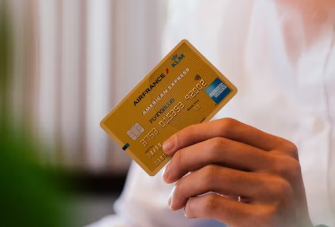How to Start a Business in Ireland
If you’ve ever thought about starting a business in Ireland but weren’t sure how to begin, or even where to go to find information, you’ve come to the right place. We break down registration and start-up for citizens of European Economic Area (EEA) countries (and Switzerland), and everyone else, including the amount of capital required to start a business.
Start with a Plan
Launching a business requires a comprehensive business plan. This includes determining:
- What you want to sell
- If you’ll have a physical location or an online-only presence
- Your target market
- The funds required to launch your business
- Marketing strategies for your business
- How you’ll grow the business (or whether you plan to stay small and nimble)
Having a solid plan in place before you start will give you the confidence to move forward with the business launch and give potential investors and partners confidence in you.
Ireland offers many resources for new business owners, including help with planning your business, through Local Enterprise Offices.
Before you go too far down the business planning process, you need to know that there are different requirements for business owners depending on your country of permanent residence (even if the business will be located entirely in Ireland).
EEA Nationals vs. Everyone Else
Starting a business in Ireland will look a little different for EEA nationals and Swiss citizens than for everyone else. EEA nationals are citizens of 30 countries who are part of the European Economic Area, which includes most European countries, excluding Russia.
Citizens in these countries will not need a work visa to begin a business in Ireland and don’t need special permission from the Irish government to start a business. They also have to meet fewer government requirements.
If you’re not from an EEA country (or Switzerland), you’ll need to follow one of two routes: the Immigrant Investor Programme, or the Start-Up Entrepreneur Programme. Note that you will need to apply for each program, and it’s possible that your application could be denied.
Immigrant Investor Programme
If you choose to take this path to start a business in Ireland, you’ll need to:
- Show that the investment you plan to make is good for the Irish economy and the country overall
- Own any and all investment capital yourself (it cannot be borrowed)
- Obtain multi-entry visas (good for 5 years maximum, and only for you and your immediate family)
- Demonstrate that you and any other investors have “good character” and haven’t been convicted of a crime in any country
- Prove that you (and any other investors) have a minimum net worth of €2 million (about $2.4 million USD. as of April 2021)
Start-Up Entrepreneur Programme
If you’re not a citizen of an EEA country (or Switzerland) and you choose to start a business in Ireland under the Start-Up Entrepreneur Programme (STEP), you’ll need to do the following:
- Show you have an “innovative” business idea
- Have €50,000 to invest (about $60,400 USD as of April 2021)
This program is designed for high potential start-ups, which are defined as new businesses that:
- Create at least 10 jobs in Ireland within the first 3 years
- Have an experienced team of managers/executives
- Bring in at least €1,000,000 in sales within the first 3 years
- Are manufacturing-based or promote international trade
- Provide an innovative service (or product) for an international market
- Are headquartered and “controlled” in Ireland
- Are no more than 5 years old at the time of registration in Ireland
Businesses that qualify as high potential must raise all of their necessary operating funds within 18 months of registration. Enterprise Ireland’s website has plenty of helpful information if you choose to participate in the STEP program.
If your business doesn’t qualify as a high potential start-up, it’s possible that you could have other options for your business. Be sure to review the other sources of information available to you as a business owner.
Regardless of which route you choose, or whether you’re an EEA or Swiss national, you’ll still need to choose a name for your business.
Select a Business Name
Hopefully, you’ve already chosen the business name you’ll want to use for your company; however, that doesn’t necessarily mean you’ll able to use it.
You’ll want to do a name search before attempting to register it to be sure that it isn’t already in use by another business entity.
You first need to register the name with the Companies Registration Office (CRO) website. In order for the registration to be valid, your business must be located in Ireland.
Once your search comes back without finding any other businesses with your preferred business name, and you’ve got the business name registered, you’re ready to select your business structure.
Choose a Business Structure
In Ireland, you can operate as a sole trader, limited partnership, or as a company.
A company could be a:
- Private Company Limited by Shares (LTD)
- Designated Activity Company (DAC)
- Company Limited by Guarantee (CLG)
- Public Limited Company (PLC)
- Unlimited Company (public or private)
- Single Member Company (with at least one director and a secretary)
- Investment Company
Regardless of the business structure you choose, you’ll need to register your business through the CRO.
Get Registered in Ireland
As with registering a business name, you’ll register your business through the CRO.
If you choose to use the online system exclusively, it will only cost you €20 to register your business, but if you choose to print the documents and file them in person or via post, it will be €40.
If a limited partnership will include someone from a non-EEA country (or Swiss national), the limited partnership must also be approved by the Minister for Justice and Equality.
If your business is a company, Companies you’ll be required to provide a 4-digit NACE code that describes the company’s main business activity, such as growing rice, as well as a registered office where the company may be contacted. The registered office must have an actual physical location to qualify.
Because everything can be done online, the registration process could be completed in as little as five days.
Next, you’ll need to get a tax registration number so you can legally operate your business in Ireland.
Obtain a Tax Registration Number
All businesses in Ireland, except for sole traders, are required to pay corporation taxes. Sole traders will need to pay self-assessment taxes.
You can register for the appropriate tax account for your business through the Revenue Online Service. The Irish Tax and Customs website has many useful links to direct you to the proper resources if you need additional help setting up your tax account.
Now that your legal and tax requirements are complete, you’re almost ready to welcome customers—but don’t forget about an essential business item first!
Use A Trustworthy POS System
You’ve spent months, maybe even years, planning out all the little details related to your business. But have you given any thought to your point of sale system?
While it may seem like a minor detail, customers will remember how easy, or how difficult, their payment experience was with your company.
Epos now offers solutions for all types of businesses, including mobile point of sale options for both Android and Apple devices. Epos Now also works with some of the most popular credit cards in the world (including Visa, Mastercard, and American Express), while also allowing customers to use Apple Pay and Google Pay, to name a few.




